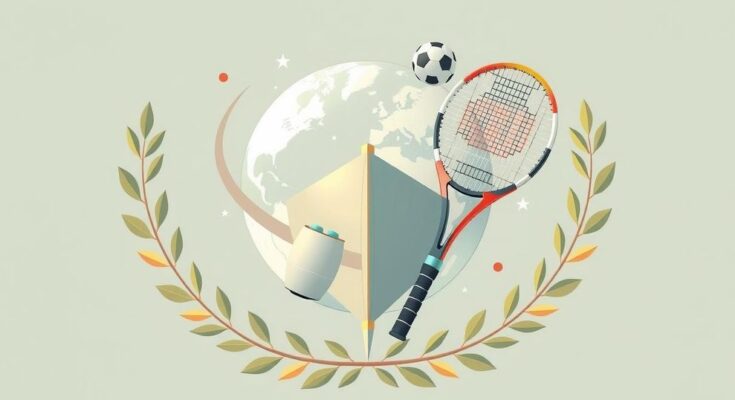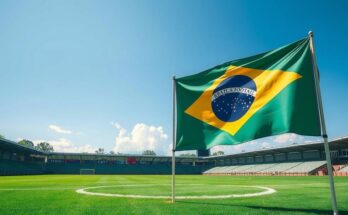Algeria’s regime has utilized the Court of Arbitration for Sport’s recent ruling to disseminate misleading narratives justifying its long-standing territorial dispute with Morocco. Despite attempts to annul RS Berkane’s victory, Algeria’s actions reflect a broader trend of manipulating sports for political ends amid its diplomatic failures regarding the Western Sahara issue. The international community continues to uphold Morocco’s claims, further complicating Algeria’s position.
The latest ruling by the Court of Arbitration for Sport (CAS) has prompted Algeria’s government and its media outlets to launch misleading narratives aimed at justifying Algeria’s enduring dispute with Morocco over territorial rights. After failing to overturn RS Berkane’s victory against USM Alger in the CAF Confederation Cup match, Algeria resorted to casting doubt on the ruling, suggesting it was influenced by geopolitical factors rather than the game itself.
Algeria’s initial attempts to annul RS Berkane’s victory involved tactics intended to humiliate the Moroccan team upon arrival in Algiers, including the confiscation of jerseys bearing a map of Morocco that included its territorial claims. This incident exemplified Algeria’s stringent measures against anything perceived as a challenge to its support for the Polisario Front, the separatist group seeking independence in Western Sahara, which Morocco and the broader international community dispute.
The cancellation of USM Alger’s game in Morocco was another attempt by the Algerian regime to dictate the terms of competition, culminating in CAF’s decision to award RS Berkane the win in light of Algeria’s refusal to participate. The TAS ruling confirmed the adherence of RS Berkane and the Moroccan Football Federation to the regulations, highlighting that no sanctions would be imposed, thereby recognizing their compliance with international football norms.
Importantly, TAS emphasized the requirement for neutrality in all sporting equipment, noting that political symbols are not permissible. This particular ruling has been seized upon by Algeria’s regime and affiliated media, which have a history of promoting their position on Western Sahara without acknowledging the limitations of TAS’s jurisdiction regarding political issues.
The ongoing discord between Algeria and Morocco over the Western Sahara matter is primarily under the auspices of the United Nations, which has repeatedly called for a political resolution involving all parties. Despite these international stipulations and calls for cooperation, Algeria has opted to engage in politicizing sports to undermine Morocco’s territorial claims, reflecting its strategic intention to challenge Morocco’s political standing in the region.
Algeria is regarded as a key supporter of the Polisario movement and has historically invested significantly in separatist aspirations. The UN Security Council’s continual endorsement of Morocco’s Autonomy Plan as a viable resolution to the conflict stands in stark contrast to Algeria’s efforts, as momentum grows internationally in support of Morocco’s sovereignty over Western Sahara.
As diplomatic tides shift, over a hundred nations now back Morocco’s position, reinforcing its claim over the region. The recent developments in sport and political diplomacy highlight Algeria’s frustration with its diminishing influence, as they inadequately attempt to deflect from their broader diplomatic failures through sports politicization.
The politicization of sports by the Algerian regime reflects deeper diplomatic failures regarding the Western Sahara dispute, as highlighted by the TAS ruling favoring RS Berkane. As Algeria struggles to maintain credibility in its stance against Morocco, the manipulation of sports narratives serves as a distraction from its inability to contribute meaningfully to ongoing international dialogue and resolutions. The international community increasingly recognizes Morocco’s position, indicating a shift that may further isolate Algeria on this issue.
Original Source: www.moroccoworldnews.com




